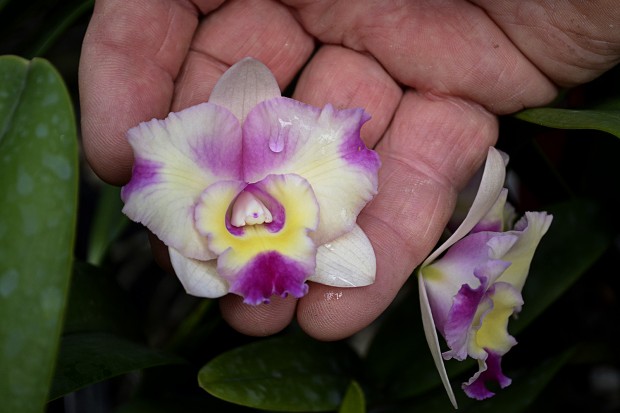CATTLEYA….. cat-lee-ya
There are 70 species, found in the American Tropics between Mexico And southern Brazil. They grow in trees and rocks in wet forests, from sea level to 1500 meters, they like well drained potting material. There is one noticeable difference in the plants and that is the leaves. There is the Unifoliate, which has only one leaf and the Bifoliate which has two leaves. All have pseudo bulbs of varying size, depending on plant size.
THE MORE COMMONLY KNOWN SPECIES:
UNIFOLIATE
- C. labiata;
- C. gaskelliana;
- C. maxima;
- C. warscewiczii;
- C. mossiae;
- C.dowiana;
- C. trianae.
BIFOLIATE
- C. aurantiaca
- C. aclandiae
- C. bicolor
- C. amethystoglossa
- C. bowringiana
- C. intermedia
- C. guttata
- C.forbesii
- C. schilleriana
- C. granulosa
- C. walkeriana
- C. skinneri
- C. violacea.Laelia
- L. anceps
- L. flava
- L. pulima
- L.purpurata
- L. crispa. Brassavola
- Br. nodosa
- Br. cordata
- Br. digbyana
- Br. glauca
SOPHRONITIS
Remember with Species, that they have a growing period, a flowering period and a rest period. It is not a good policy to fertilize them all the year round, it can lead to poor growths and poor flowers. For this reason, cutting them up and re potting should only be done when they are in their growth cycle. Remember that all the hybrids of today, originally started from the species.
- Soph. coccinea
- Soph. cernua
![]()